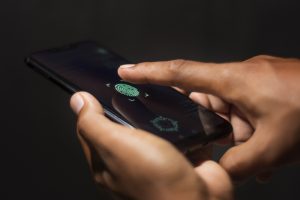Can the police force you to unlock your phone? It seems like everyone wants the answer to this question as nobody wants to share the contents of their smartphone with a stranger, let alone the police. Here’s what you need to know about law enforcement and cell phone privacy.
Constitutional Protection
The founding fathers grew up worrying about British troops knocking down their front door and tossing them into prison with very little evidence. Consequently, they made sure that the newly formed United States would guarantee its citizens the right to live without fear of unreasonable searches and unfair criminal proceedings.
When it comes to the question of “can the police force you to unlock your phone?” you can rely on the Constitution for some protection. Indeed, the Fourth and Fifth Amendments to the United States Constitution make it illegal for the cops to take your phone and search it without the approval of the court.
So, can you tell a police officer to go pound sand if they ask for your phone? Well, it’s a little more complicated. Keep reading to find out why.
When Can the Police Force You to Unlock Your Phone?
When can the police make you open your phone? The short answer is that smartphone privacy is evolving as the law catches up with advancing technology. In a 2018 U.S. Supreme Court ruling, for example, the police are prohibited from searching your cell phone location data without a search warrant. 
The police usually need a warrant to seize your cell phone. However, the police can take it without court authorization when the police have probable cause that the phone contains evidence of a crime. The court typically allows a warrantless seizure if the cops argue that evidence was in danger of destruction.
Another way that your phone can end up in police custody is if you find yourself under arrest. The police will take your phone along with the rest of your belongings when they book you into jail.
Still, there is a big difference between the police having custody of your smartphone and them having the right to search its contents. In general, law enforcement must have a signed warrant giving them specific permission to search before they examine the contents of your phone.
Interestingly, a recent appellate court decision in California determined that individuals don’t have to unlock their phone for the police. According to the court ruling, you don’t need to unlock your phone even when the police show you a warrant. Expect this decision to face plenty of legal challenges, and the outcome may swing in favor of the police right to search at some point.
Lastly, can the police force you to unlock your phone? The answer depends on whether the police can convince a judge that your phone holds valuable evidence of a crime on it. Be safe and keep anything that looks suspicious off of your phone.
Contact Gibson Bail Bonds when the evidence goes against you, and you end up behind bars. We’ll work with you to post your bond and get you home as fast as possible.


